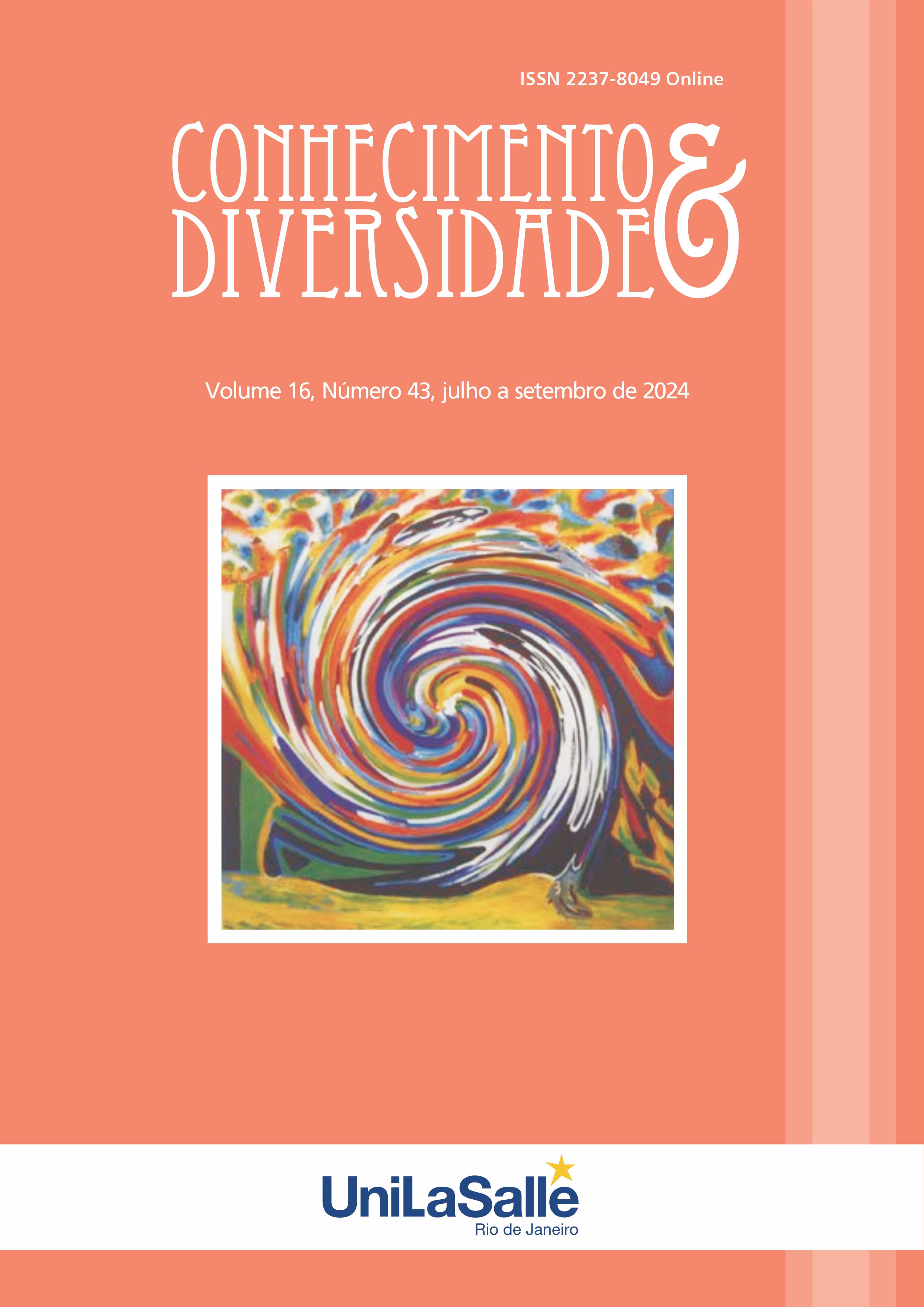HIGHER EDUCATION
INTEGRATIVE CAPABILITIES OF NATIONAL SYSTEMS (INFORMATION AND COMMUNICATION MODEL)
DOI:
https://doi.org/10.18316/rcd.v16i43.11881Keywords:
Higher Education, Distance Learning, Information and Communication Technologies, IntegrationAbstract
Quarantine restrictions related to the COVID-19 pandemic have also given impetus to using the benefits of digitalization to improve the education sector. The purpose of the article is to characterize the importance of information and communication technologies through the prism of the integration of national educational systems. The methodological basis of the study was a questionnaire survey of teachers of higher education institutions of Ukraine, the results of which were processed through the use of system analysis, prognostic method, and comparison. In the results, the general trends and foundations of the integration of national systems of higher education in the countries of the European Union were observed. The integrative potential of information and communication forms of educational organization in the modern world is also emphasized. It has been established that ICT contributes to the development of a number of directions and functions of education. In particular, they increase the accessibility of education, improve organizational and material, and technical support, and contribute to the emergence of new opportunities in the choice of a personally-oriented trajectory of education. The conclusions emphasize that, the absolute majority of teachers are convinced that ICT is a necessary condition for modern work.
References
Abbasimehr, H., Paki, R., & Bahrini, A. (2021). A novel approach based on combining deep learning models with statistical methods for COVID-19 time series forecasting. Neural Computing and Applications, 34(4), 3135-3149. https://doi.org/10.1007/s00521-021-06548-9
Avby, G. (2022). An integrative learning approach: Combining improvement methods and ambidexterity. The Learning Organization. https://doi.org/10.1108/tlo-10-2021-0127
Bader, S., Oleksiienko, A., & Mereniuk, K. (2022). Digitalization of future education: analysis of risks on the way and selection of mechanisms to overcome barriers (Ukrainian experience). Future Education, 2(2), 21-33. https://doi.org/10.57125/FED/2022.10.11.26
Bakhmat, N., Kruty, K., Tolchieva, H., & Pushkarova, T. (2022). Modernization of future teachers' professional training: on the role of immersive technologies. Future Education, 2(1), 28-37. https://doi.org/10.57125/FED/2022.10.11.22
Datta, S., Dey, S., Acharya, A., & Datta, D. (2021). Blended learning. In Digital pedagogies and the transformation of language education (pp. 227-249). IGI Global. https://doi.org/10.4018/978-1-7998-6745-6.ch012
Huda, O. (2023). Use of the Moodle Platform in Higher Education Institutions During Training Masters: Experience Under Martial Law. E-Learning Innovations Journal, 1(2), 4–20. https://doi.org/10.57125/ELIJ.2023.06.25.01
Järvis, M., Tambovceva, T., & Virovere, A. (2021). Scientific innovations and advanced technologies in higher education. Future Education, 1(1), 13-22. https://doi.org/10.57125/FED.2022.10.11.2
Kekoni, T., Kainulainen, A., Tiilikainen, E., Mäki-Petäjä-Leinonen, A., Mönkkönen, K., & Vanjusov, H. (2022). Integrative learning through the interdisciplinary Social Law Clinic - learning experiences of law and social work students. Social Work Education, 1-15. https://doi.org/10.1080/02615479.2022.2102163
Linhares Ponte Filho, M. H. (2020). Information and communication technologies in education. International Journal for Innovation Education and Research, 8(8), 541-550. https://doi.org/10.31686/ijier.vol8.iss8.2560
Malaniuk, N. (2020). Innovative pedagogical technologies in professional education. Pedagogy of the Formation of a Creative Person in Higher and Secondary Schools, 3(70), 113-118. https://doi.org/10.32840/1992-5786.2020.70-3.21
Milanković Jovanov, J., Ivkov-Džigurski, A., Stanisavljević, J., Ivanović Bibić, L., D. Petrović, M., & Đukičin Vučković, S. (2022). Is the integrative teaching approach beneficial for learning? International Journal of Cognitive Research in Science, Engineering and Education, 10(2), 173-183. https://doi.org/10.23947/2334-8496-2022-10-2-173-183
Prokopenko, O. (2021). Technological challenges of our time in the digitalization of the education of the future. Future Education, 1(2), 4-13. https://doi.org/10.57125/FED/2022.10.11.14
Rak-Młynarska, E. (2022). Analysis of trends in the development of the educational environment: education of the future. Future Education, 2(2), 4-13. https://doi.org/10.57125/FED/2022.10.11.24
Rani, G., Kaur, P., & Sharma, T. (2022). Digital education challenges and opportunities. Journal of Engineering Education Transformations, 35(4), 121-128. https://doi.org/10.16920/jeet/2022/v35i4/22111
Sarasola Sánchez-Serrano, J. L., Jaén-Martínez, A., Montenegro-Rueda, M., & Fernández-Cerero, J. (2020). Impact of the information and communication technologies on students with disabilities. A systematic review 2009-2019. Sustainability, 12(20), 8603. https://doi.org/10.3390/su12208603
Stosic, L., Dermendzhieva, S., & Tomczyk, L. (2020). Information and communication technologies as a source of education. World Journal on Educational Technology: Current Issues, 12(2), 128-135. https://doi.org/10.18844/wjet.v12i2.4815
Sun, Y. (2022). Teaching of dance choreography course based on multimedia network environment. Journal of Environmental and Public Health, 1-10. https://doi.org/10.1155/2022/8627822
Sushchenko, T. I. (2019). Extracurricular pedagogy as an important component of pedagogical studies. In Innovative technologies in training and education (pp. 84-102). Liha-Pres. https://doi.org/10.36059/978-966-397-174-2/84-102
Tsekhmister, Y. V., Kotyk, T. M., Matviienko, Y. S., Rudenko, Y. A., & Ilchuk, V. V. (2021). La efectividad de la tecnología de realidad aumentada en la educación STEAM. Apuntes Universitarios, 12(1), 250-267. https://doi.org/10.17162/au.v11i5.932
Zahorodna, O., Saienko, V., Tolchieva, H., Tymoshchuk, N., Kulinich, T., & Shvets, N. (2022). Developing communicative professional competence in future economic specialists in the conditions of postmodernism. Postmodern Openings, 13(2), 77-96. https://doi.org/10.18662/po/13.2/444
Zhao, Q. J., Cupido, N., Whitehead, C. R., & Mylopoulos, M. (2022). What role can education play in integrated care? Lessons from the ECHO (Extensions for Community Health Outcomes) Concussion program. Journal of Integrated Care. https://doi.org/10.1108/jica-01-2022-0012
Downloads
Published
Issue
Section
License
Copyright (c) 2024 Olena Kaidanovska, Mariia Pymonenko, Oksana Morklyanyk, Oksana Iurchyshyn, Yaroslav Rakochyi

This work is licensed under a Creative Commons Attribution 4.0 International License.
As recommended by the Public Knowledge Project, RCD adopts for its articles a CREATIVE COMMONS Attribution CC BY 4.0 license.
This license allows others to distribute, remix, adapt and build upon your work, even commercially, as long as they credit you for the original creation.
This is the most appropriate license offered.
Recommended for maximum dissemination and use of licensed materials.



